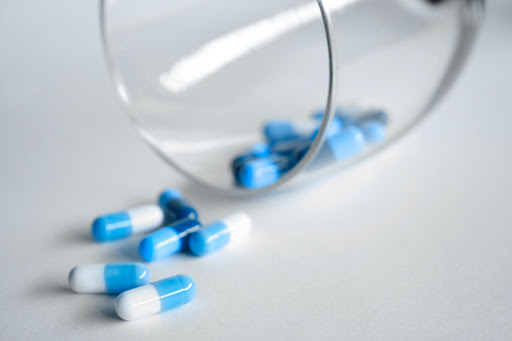We face difficulties in treating antibacterial infections. Therefore, medical science has devised antibiotics as they are mighty medications that aid us in combating antibacterial infections. If you have ever suffered from diseases like pneumonia, tuberculosis, and whooping cough, we bet you have necessarily taken antibiotics. When taking antibiotics, a million-dollar question always comes to our mind- how long does it take for antibiotics to work? If you are also curious to unfold the chemistry behind this, you have landed at the right place. We will cover everything about the time required for antibiotics to work properly.
Table of Contents
How Long Does it Take Antibiotics to Work- Factors Analysed

Antibiotics are the medicines taken to cure antibacterial infections. The effectiveness of antibiotics depends on several factors such as the type of medicine prescribed by your doctor, overall health, age, and other factors.
1. The severity of Infections:
If the infection is high, antibiotics may take long to work. As against it, if the infection is mild, antibiotics may work quickly.
2. Overall Health:
The effectiveness of antibiotics also depends on the overall health of the patients. For example, if a person has a weak immune system, antibiotics may take a long time to heal the bacterial infection. On the contrary, persons with robust immune systems will respond fast to antibiotics.
3. Type of Antibiotics:
The effectiveness of antibiotics also depends upon the types of antibiotics chosen. Some antibiotics work fast than others and others do not.
How Long Does it take for Antibiotics to Work Based on Infections?
The time of effectiveness of antibacterial medicines should be treated based on the condition of infections. Here is an exhaustive detail for you to take into account.
1. Mild infection:
The time taken by antibiotics to respond depends on the severity of the infection. For example, if you are combating with mild bacterial infection say sinus, it will take at least one to three days to act.
2. Moderate Infections:
If you are battling with moderate infections like pneumonia, antibiotics will at least take 3 to 7 days to act accordingly.
3. Chronic/Long-Lasting Infections:
If you are suffering from some chronic infections like bone infection, antibiotics will start responding after 7 days.
However, this responding cycle may sometimes work differently. For example, in some mild cases, antibiotics may start working immediately but the signs of their effectiveness are not visible to us.
4. Different Antibiotics Works Differently:
Medical science and research study says that not every antibiotics work for every infection. Therefore, if you are taking the wrong antibiotic medication, it may not work at all. While some antibiotics can work fast and others can take a long time to respond to the illness of your body. For example, if you take Penicillin for a long time to work. Penicillin also works as per the level of illness. It can take a few days or even months to work. On the other hand, some antibacterial medications work in a few hours. For example, Levofloxacin starts working within a few hours.
How We Can Maximise the Efficiency of Antibiotics in Our Body?
Antibiotics response time is quite different from person to person. However, we can maximise its efficiency depending on certain factors.

Don’t Leave the Course of Antibiotics in Between:
Antibiotics will not work effectively and treat your illness if you will leave the course in between. As soon as many people view the symptoms of relief, they stop taking these antibiotics. Do not commit this folly because the symptoms of bacteria responsible for your illness may emerge again after a few days and will make you succumb to illness. If even after taking the prescribed medicine for full days, you do not get any relief, you should straightaway talk to your healthcare or medical practitioner.

Take the Antibacterial Dose after Consulting:
Not all antibacterial medicines can treat every inspection. Hence, you should not rely on any random antibacterial medicine, instead, you should take the dose only after it is prescribed by the doctor. It will improve the overall response time of the antibacterial medicine on your entire body. If your doctor has prescribed a particular time to take an antibacterial infection, do follow it for the best results.
All these factors will determine the longevity of antibiotics to stay in your body.
Note: Always refrain from taking overdose of any antibiotics as it can be extremely harmful for your body.
The Nutshell:
After going through every bit of information about how antibiotics work, we can say that the effectiveness of antibiotics will depend on a variety of factors. How Long Does it Takes for Antibiotics to Work is also dependent on the severity of infections, the type of infections being treated. Every antibiotic has a different formation and is used to treat different kinds of treatment. Therefore, to generalise we can say that some antibiotics start responding immediately although we are not able to see any clear symptoms regarding this while some take a long time to respond.



